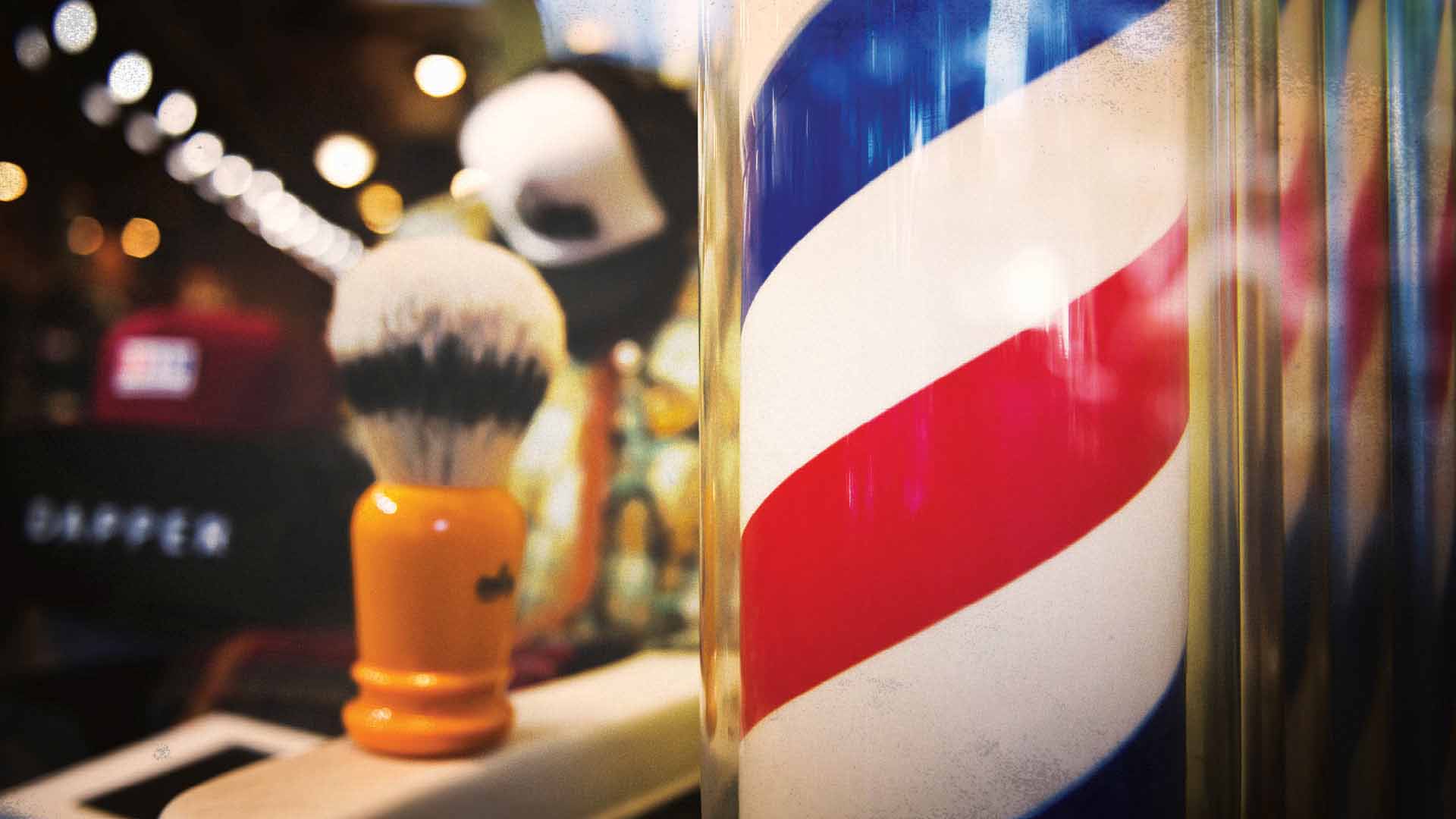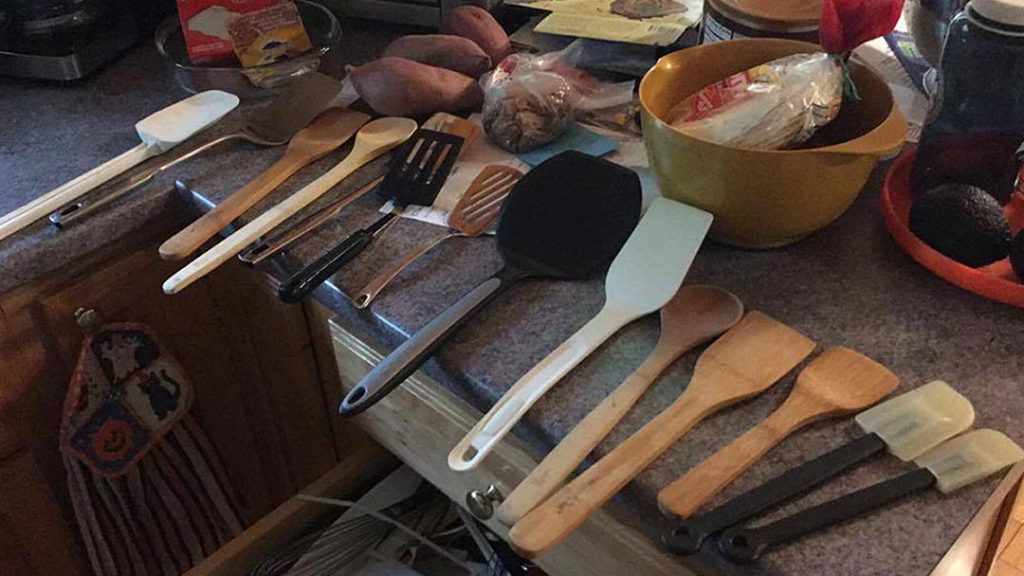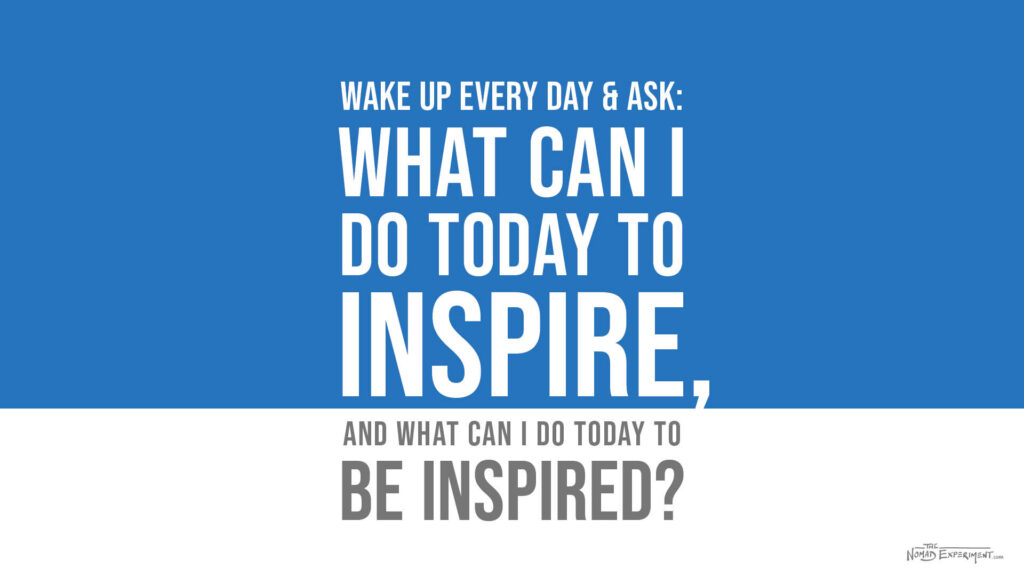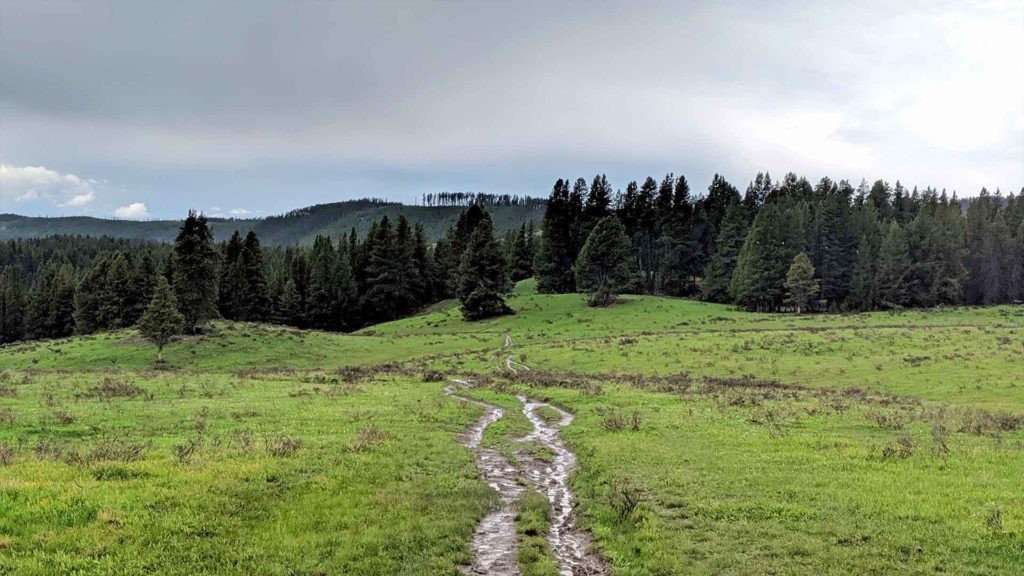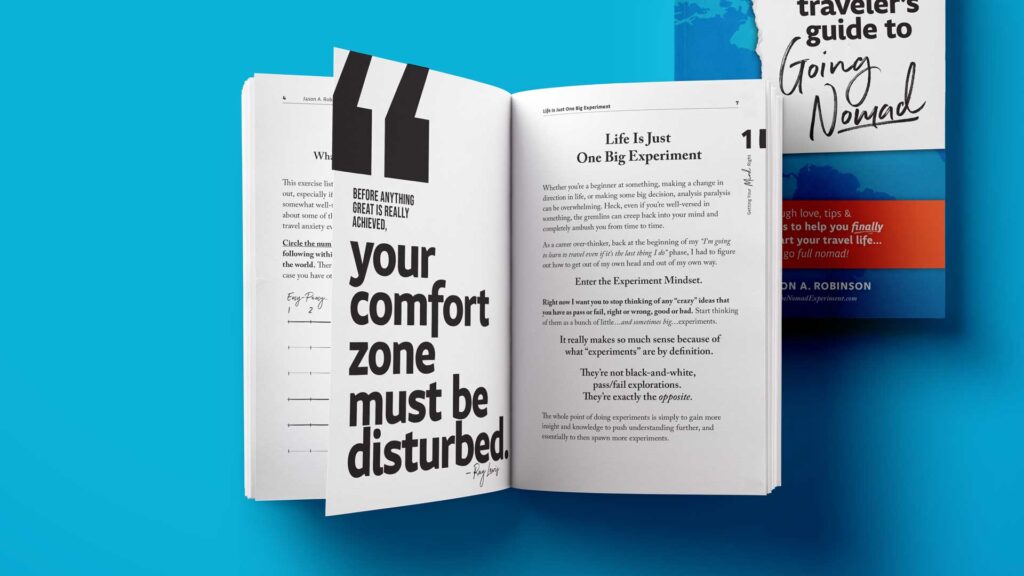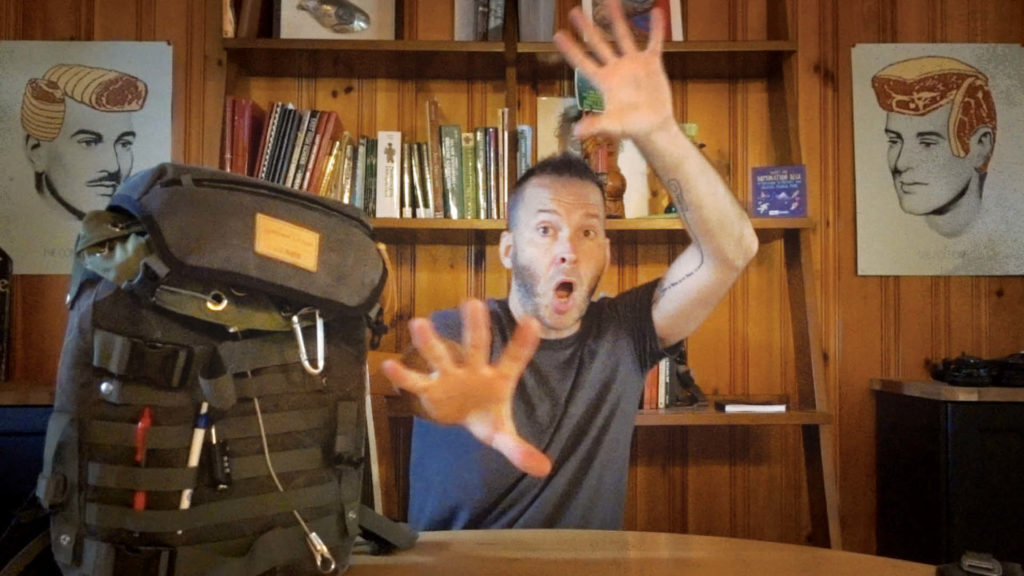Life Lessons From The Barbershop & The Subtle Art Of Being On Time.
Have you ever noticed that some of the little things that used to be so important, like being on time, seem to be going by the wayside? Forgive me if I channel my inner grumpy old man for a while, but sometimes it’s unavoidable. I mean, the reason they are life lessons is that they’re supposed to be used…for life…right? As quite the observer, I’ve noticed so many times over the years that the barbershop, no matter which, is an amazing place. So many good (and bad) life lessons and metaphors for life can be found.
I’ve been frequenting a new barbershop for about 2-3 years now, and over that time I’ve been blessed to be schooled on many an occasion.
Not in the sense that I necessarily needed to be schooled, but more so in the sense that I was happily schooled. Privileged to spot something in the way the crew carries themselves and runs as a business and individually. They stoke the flame of hope that some “old-school” values are still very much still alive in this more and more non-traditional, digital age.
Join the email list to stay in the loop on new releases!
This site participates in the Amazon Services LLC Associates Program and other affiliate programs and may earn from qualifying purchases. You’re never charged more, but it helps out little by little! Check out “Privacy” in the top menu if you need to know more!
Barbershop Lesson 1: “We Say Hello Around Here.”
Let me introduce you to T, the sassy and smart, outspoken proprietor. The leader of the charge if you will. I respect her forwardness and leadership, especially since it’s often balanced with a side of a sweet smile or welcoming laugh. She always says hello when someone walks through the door. Like…always. For that fact, she’s made it a point that all of the barbers greet anyone that walks in the door. Really makes me feel less like a number or a dollar sign and much more like a person and a valuable piece of their day.
One day I walked in, heard the hellos, and could swear I responded accordingly. Truth be told, my mamma always told me I mumble, sooo, I guess there’s a chance… Well, I was swiftly reprimanded for my lack of proper societal skills; “You don’t say hello? We say hello around here.” Her recourse was swift, and completely appropriate.
Saying Hello Really Isn’t That Difficult….
See, it was my bad. It’s kind of like when your parents said “apologize like you mean it…” in response to your half-assed, just saying it to get out of trouble response to a sibling.
There’s a selfish, half-assed way to say hello and selfless, proper way to say hello.
I was dropping the former that day. Being a little down, I mumbled, didn’t make eye contact, and was likely externalizing my sh*tty day or whatever was bringing me down. Had I not walked in like a selfish cotton-headed ninny muggins, I would have realized that these people make my day better. Greeting them accordingly should have been my thanks in advance for what they do for me.
Beyond that, it’s just a respectful way to say hello.
There’s a reason I own 2 physical copies of the Original Gangster, Dale Carnegie’s timeless Bible on people skills, “How To Win Friends and Influence People.” Simply being a good person never goes out of date, but on occasion, refreshers are needed on how to slay at it.
READ NEXT: Nomad Fuel: Books for Inspiration, Motivation, & Generally Slaying it at Adulting
Adulting 101: How To Be A Better Human In 4 (Not So) Simple steps
Barbershop Lesson 2: Skin Color Is An Antiquated Idea; We All Bleed Red. But We Have To Talk About It.
Then there’s V. V was my first barber at the shop, but she’s moved on in the past year, choosing to go explore a new city. She was kind of the Doc Holliday to T’s Wyatt Earp. A little more quiet and reserved, but also willing to throw down some serious heat when needed. Thoughtful and inquisitive, always asking questions and digging deeper for new knowledge. If you know me, you won’t be surprised to hear that we got along quite well.
Well, my city (like so many others) has had quite a few very visible, toxic race issues over the recent years. Some of those ended in the loss of lives, and often with the boys (and girls) in blue under the microscope. Without getting into the details, let’s just say it needs to be discussed, but as you know, that can be difficult.
Talking About Politics, Race, And Religion Requires Tact By All Sides, Since They’re Emotional Issues.
Did I mention that this is a predominantly black barber shop and that I’m about as cornbread white boy as they come?
V and I didn’t have all (or maybe any…) of the answers, but I appreciated that we were able to have discussions. I remember a day when we were talking about the then-recent riots and what a mess the whole situation was. We talked about how we (as a society) could overcome it. And it goes without saying that I had a lot to understand.
I spoke from what I had learned or gleaned from my personal situation, and she spoke from hers. We both admitted to each other that while we wanted to, it was nearly impossible for either to fully understand the other side of the coin because of our different backgrounds and upbringings.
How Could We As A Society Be Able To Have Better Conversations?
We threw around the idea of public forums led by diverse leaders aimed at constructive, difficult conversations. Getting people out from behind their screens. Facilitating a constructive conversation as opposed to an aggressive argument.
It’s an appropriately emotional issue, but at the root of it were a majority of people who had core desires to love, be loved, and to be able to take care of their family and friends.
The bottom line is that we both had to be careful during the conversation, but we had the conversation. We respected each other as people that were both knowledgable and ignorant at the same time. While speaking from our own experiences we understood that they were indeed limited. They required the other’s viewpoint to create any semblance of a real, balanced conversation.
We didn’t solve any of the world’s issues that day. But I feel like we did continue the much needed conversations that bring people of different backgrounds and circumstances closer to understanding. Baby steps.
Barbershop Lesson 3: The Subtle Art Of Being On Time, And Doing What You Say You’re Going To Do…When You Say You’re Going To Do It.
Lastly there’s O. Once V left, I was at the whim of whoever’s chair I ended up in next. While O had been there a while, I honestly didn’t know much about him. I gleaned that he was quiet and fairly methodical and thoughtful in his approach. What I’ve since learned about him is insights into his goals and aspirations.
While still on the younger side, He fits quite perfectly within this sage circle of wig-splitting, insightful minds and passionate souls.
A couple of weeks ago, around a major holiday, I called O to get an appointment. Typically all goes as planned and I’m in the door and in his chair within minutes, right as scheduled. See, I’m from the school of “if you’re not 5 minutes early you’re late,” but this time was a little different.
I Wasn’t On Time, I Actually Got There About 45 Minutes Early!
I happily took a seat and pointed out that I was quite early, but that I had my computer and would wait and get some work done. Soon though, my scheduled time was a distant memory, and it was clear that he was well-behind, but all the while making sure he was appropriately attentive to all of his customers.
Over a half-hour came and went past my appointment time, O acknowledging my patience the entire time, when I finally made it into the chair. We go way back now, and sh*t happens, but I did appreciate his thoughtful apology for my inconvenience. See, while we’re quite friendly, he clearly understands that anyone in that chair is still a customer, and that this is a business first.
Then, a couple minutes in, O, calmly and thoughtfully spoke “This cut’s on me. I’m sorry you had to wait so long.”
He was attempting to go over and above to own a situation that wasn’t necessarily his own fault.
Here’s Why That Is So Important To Me As A Life Lesson
O didn’t have to offer that. He also didn’t have to acknowledge and thoughtfully apologize so many times. The owner, T, didn’t tell him to offer a free cut, and it would have come out of his own pocket anyway. I know how chair rentals at barbershops generally work.
It’s important because he wasn’t able to do what he said he was going to do when he said he was going to do it. But he did take ownership of the situation without pushing the burden of fault off on another.
I’ve realized recently that this is a tenet of my own upbringing that I’m thankful for. It’s a nuance, but I think it’s huge. When we pledge to another person that we’re going to do something, even if it’s a small thing, it is our commitment to own. It is not the other person’s. (Dear Momsicle and Popsicle and grandparents…bravo and thanks for that little nugget instilled during my greener days.)
So if we’re unable to follow through on something, whether it’s avoidable or not, it’s ours to acknowledge—not the other person’s.
This is important to me personally because I’ve noticed that when someone says they’re going to do something or follow-through, but then don’t, all of a sudden I am the one that feels the stress.
I wonder what the resolution is. Will they follow through? Have they forgotten? Do I have to be the one to ask/nag? Now it has essentially become my burden to super-sleuth, especially if it’s something that is actually important.
First Things First; Fix The Problem
I learned from my first design firm job that when something goes wrong, we fix it first—and quickly. Then later figure out fault and how to avoid repeating it in the future.
We need to be quick to acknowledge our own shortcomings or missteps, again, whether avoidable or not. It lessens the stress for all parties the quicker it’s addressed, and then we can move onward and upward.
I appreciated O’s offer for a free cut, but I didn’t deserve a free cut, and didn’t take it. He did the grown-up thing and owned the situation, and I hope that I did the same. I was there for the great company and a great cut, and that has value so I paid for it.
And in the end I was the lucky one that got an extra hour and a half to absorb all of the hellos, smiles, knowledge bombs, and barbershop lessens I could.
Cheers Friend.
— Jason


About Jason Robinson
Jason is the author of “The Beginner Traveler’s Guide To Going Nomad,” as well as the voice behind the words and the eye behind the lens for The Nomad Experiment. “Planning to travel at some point” wasn’t actually getting the job done, so nearing 40 he decided to make it a priority, nomatter how scary that was. A few years later—through the pandemic and a type 1 diabetes diagnosis at age 42—now living a life of nomadic travel, he’s speaking out to encourage others of any age, or with any serious medical diagnosis, to live an unconventional life.
The Beginner Traveler’s Guide To Going NOmad
What Readers Are Saying About The Book
Travel Planning Tips
Figure out where you are going & how are you getting there…
I suggest using at least 2 to 3 different travel search sites. Start with Skyscanner or Orbitz or Booking …or whatever aggregator site you prefer. Then when you see what airlines to use, check their respective sites for better deals or rewards flights.
Figure out where you’re going to stay…
If you’re interested in hostels, search Hostelworld or Hostelling International. For longer-term or more private digs, look at Airbnb, VRBO, or you can look for hotel rooms in the links from the search engines listed above.
Get comprehensive travel insurance, or in the least, travel medical insurance if internationally…
Especially with Covid not going anywhere, get covered. Start with an insurance aggregator like Insure My Trip, or with SafetyWing, World Nomads, or another. Then decide what is important to you; trip cancellation, baggage coverage, medical, or all of the above. And get a yearly evacuation plan, since you’ll have to get home after your emergency!
Need more resources? Click here!


